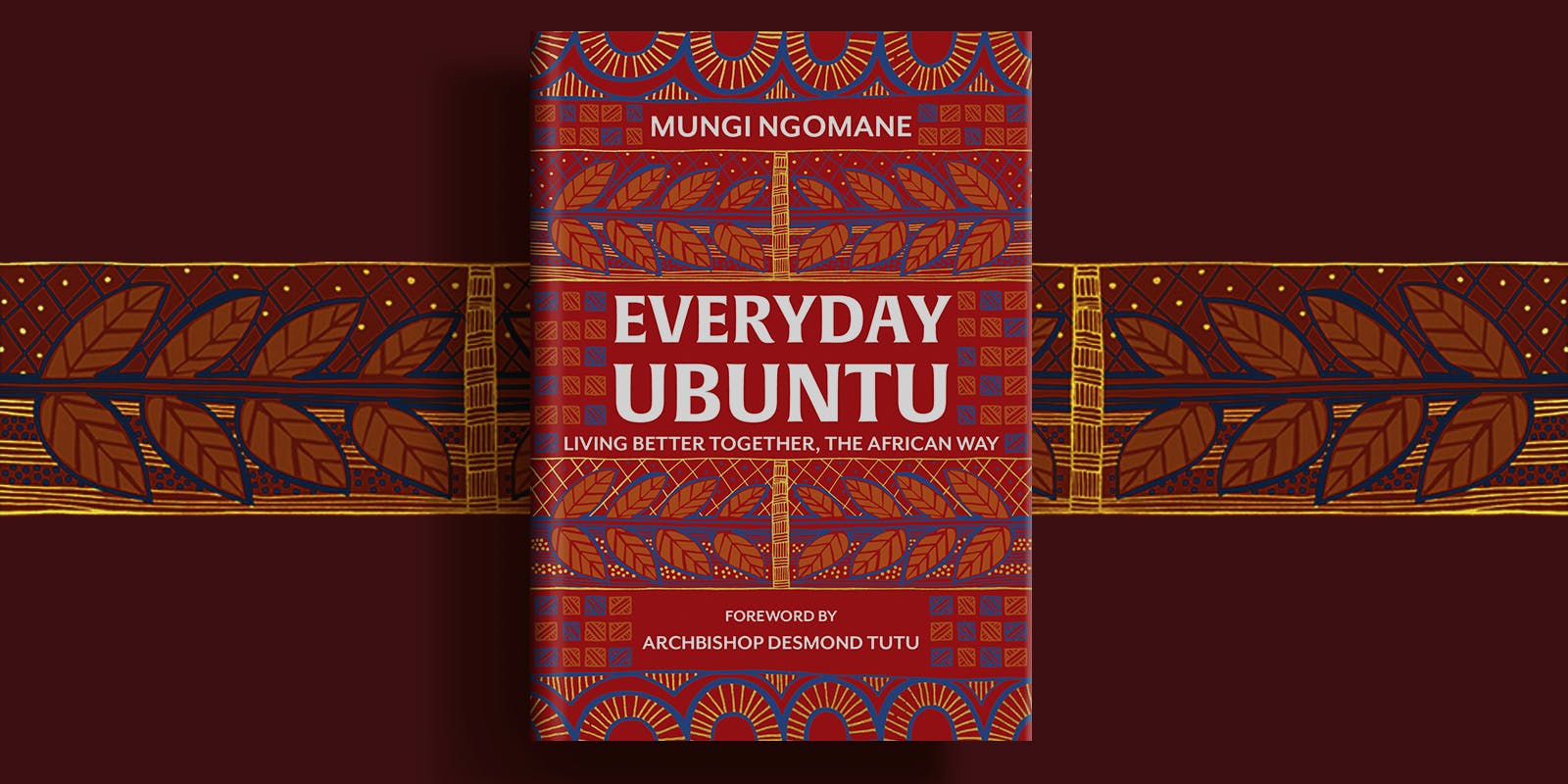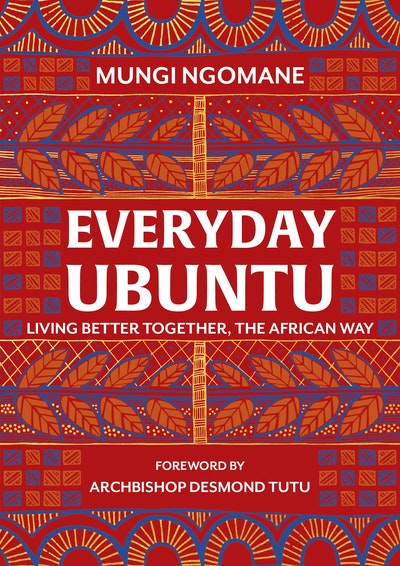A conversation with Mungi Ngomane, author of Everyday Ubuntu: Living Better Together, The African Way.
What does ubuntu mean to you?
To me ubuntu is the amalgamation of all those positive maxims, commandments and mantras that we frequently hear on how to live life well. Ubuntu is all encompassing, and it allows those sayings and proverbs to come together and coexist in a meaningful way. It’s the fundamental idea that ‘A person is a person through other persons.’ I exist and am because of others and these connections make me who I am. And that’s true for all of us – we are all here, making sense of life, together. It is when we take that shared humanity for granted that we lose out. Ubuntu is remembering that humanity is greater than just me, but also that I am an important part of humanity.
How has ubuntu influenced the way you live your life?
I have a tattoo of the word ubuntu on my wrist, so I like to think that it influences my life all the time. But that is not the reality. It’s not always at the forefront of my mind in the tough moments that life throws at us all. But I always try to come back to it, to consciously bring it to mind. When I’m able to live mindfully with ubuntu it influences my communication with those closest to me, as I’m less willing to allow conflicts to fester than the younger me was. It’s very common to want to shy away from conflict but I’ve reached a stage where the people in my life today are there for a reason and I would rather argue to resolve than argue to win because I want to keep them in my life. This idea of building bridges rather than walls is one way that ubuntu can impact on the way we live. Ubuntu also helps me when I’m giving advice to friends, as it makes me take a step outside myself and really tune in to what they’re saying. This is crucial for good communication and empathy. By putting yourself in someone else’s shoes it’s possible to offer advice that will bring resolution and comfort. I always have to ask my friends if the advice I’ve given is good advice, though. I think it is – because they’re still asking!
Why do you think ubuntu is such a key philosophy for us all to live by – and why is it so important right now?
Each one of us is of infinite worth and ubuntu reminds us to start from that assumption. If we all hold that ideal in our hearts and minds then conflicts and wars become conversations and interactions. This way of being in the world is crucial at a time like this because although we know better we are not putting that knowledge into practice. We have allowed our baser human instincts to guide our governments and, unfortunately, build a future that many people fear to leave to their children. Under every label that we give to those who are different from us is the most important element of our identity – that we are all human beings. We should learn to start there.
What would you say to people in positions of power and leadership who are not strong role models for a healthy society in which we all live better, together?
Ubuntu is about our common humanity and connection with others, but we are living in a time of great disconnection. I would like to ask those in power what personal scores they’re trying to settle, because their leadership style is not of benefit to the societies of which they are custodians. Nelson Mandela said, ‘May your choices reflect your hopes, not your fears,’ and right now it seems as though a lot of power is being channeled into fear as a means to leadership. It is harming us in the short term and it’s difficult to know what it will mean in the long term. We need to reconnect with each other and this idea of coming together should begin with our leaders.
There are 14 lessons in Everyday Ubuntu, but which do you think is the most vital?
Lesson one, ‘See Yourself in Other People.’ The idea of seeing yourself in others is where I think most great life lessons begin. But this doesn’t mean you should stop reading the book after lesson one! All 14 of the lessons are useful. But if you see yourself in others it makes it much easier to put yourself in their shoes, have respect for them, seek out ways to connect with them and learn to listen to them. We are more likely to have a positive experience with someone when we find something to connect with. These instances of connection can be a powerful force for good.
The book is full of African proverbs that express the concept of ubuntu. Which speaks loudest to you, and why does it resonate so strongly?
‘If you think you’re too small to make a difference, you haven’t spent the night with a mosquito.’ This proverb lifts me up each time I read it. It’s for those moments of self-doubt where you just need a reminder that you really do have the ability to change your circumstances and the circumstances of those around you for the better.
What did you hope to accomplish in writing Everyday Ubuntu?
I hoped that this Southern African word could become known as more than just a tech operating system! When I first googled ‘ubuntu’ that is exactly what came up – the operating system – and I was very puzzled that it wasn’t a concept that was more widely known. For me and for my family it’s always been a part of our philosophy of life. I hope that by reading Everyday Ubuntu people will find a resource for living better. I hope that they’ll be able to use this book in their daily lives to help them to live alongside others more smoothly, more happily. I want readers to flip back to a certain page and use its practical applications to help them when they’re in conflict with a friend or to use one of the sections to find tools to improve their self-worth. I hope that the word ubuntu finds its way into many more languages around the world.













